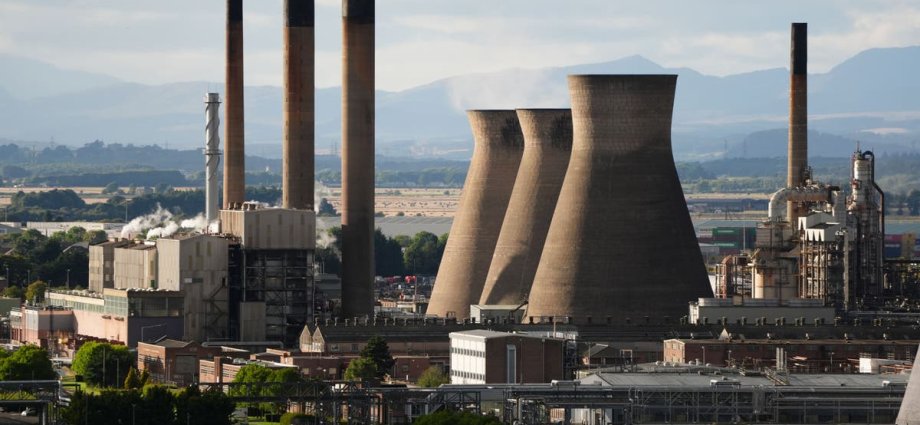Scotland’s acting Energy Secretary has said she is “wary” of talk of a potential buyer of the Grangemouth refinery.
On Thursday, within hours of the announcement from owner Petroineos that the site would be closed and turned into an import terminal in the second quarter of next year, SNP MSP Michelle Thomson – who represents the area – said she was in discussions with a potential buyer.
However, a non-disclosure agreement prevented her from divulging details.
Speaking to the BBC on Sunday, acting Energy Secretary Gillian Martin said the Scottish Government had “no idea” who the potential buyer was.
“I think one of the things that I’m slightly wary of is the fact that Petroineos actually said around late November last year that their intention was to close the refinery in its current form and turn it into an import terminal,” she said.
“I would have imagined that if anyone was interested in taking over the refinery, that would have been the key point to get in touch, but obviously, I don’t know the background of these people.”
Ms Martin added: “I would like to know who they are, I would like to know what their background is.
“And I think Petroineos obviously would like to have an understanding of who this person is as well.”
Ms Thomson, who was elected for the SNP for Falkirk East in 2021, “did not know much about” the potential buyer when she spoke to Ms Martin about the situation, the Energy Secretary said.
“Since then, she says things have been fast moving, she’s got more information.
“She’s obviously said what she said at First Minister’s Questions last week about introducing them to the Government, but I think also Petroineos needs to be involved, because of course, they’re the people that would be selling the plant, if someone’s interested.”
When the decision was announced on Thursday, along with the likely loss of 400 jobs, both the UK and Scottish governments announced a £100 million investment package in the hopes of improving prospects in the Grangemouth area.
But Ms Martin was unable to say how many jobs the investment would likely save.
“That is going to be a matter for commercial companies coming into the area,” she said.
“I would imagine that at the moment, there’s quite a lot of companies looking at the skills layout of that workforce and making offers to those people that they need.
“They are a highly skilled, highly experienced workforce who have the skills that could be transitioned into making biofuels, into making hydrogen and, of course, running the import terminal.
“I am confident that those highly skilled people will find other work.”











